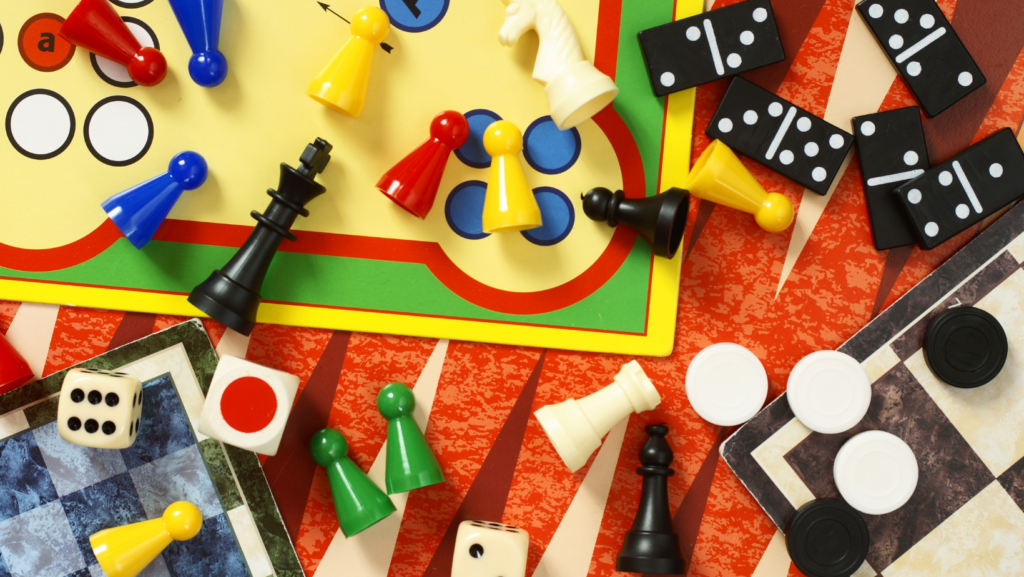In a world dominated by digital entertainment, board games classic stand as timeless treasures, offering a nostalgic escape and a chance to connect with friends and family. These beloved games, from Chess to Monopoly, have been bringing people together for generations, combining strategy, luck, and a bit of friendly competition. They hold a special place in the hearts of many, transcending age and culture.
Board games classic aren’t just about rolling dice or moving pieces; they’re about creating memories and honing critical thinking skills. Whether it’s the strategic depth of Chess or the economic challenges of Monopoly, these classics offer something for everyone. As people seek unplugged moments in their busy lives, the charm of classic board games becomes ever more appealing, inviting players to gather around the table and engage in timeless fun.
Board Games Classic

Board games classic have roots tracing back thousands of years. Ancient civilizations like those in Egypt and Mesopotamia created some of the earliest known games. The Royal Game of Ur, dating back to 2600 BCE, is one of the oldest examples. As time progressed, different cultures adopted and adapted board games.
In India, Chess emerged in the 6th century, evolving from the game Chaturanga. Each piece symbolized a component of the military strategy. Chess’s complexity has since captivated players worldwide, becoming a timeless classic.
Popular Classic Board Games
Classic board games have captivated players for decades. They offer strategic challenges and social interaction.
Chess
Chess, a game of strategy, dates back over a millennium. Players control 16 pieces each, aiming to checkmate their opponent’s king. With origins in the 6th century as Chaturanga, chess evolved through Persia and medieval Europe. It remains a staple in competitive and casual play.
Checkers
Checkers, or draughts, involves diagonal moves on an 8×8 board. Each player starts with 12 pieces, capturing opponents by jumping over them. Originating from an early game called Alquerque, modern checkers emerged in France during the 12th century. Its simple rules and strategic depth endear it to players worldwide.
Monopoly
Monopoly simulates real estate trading with players aiming for financial dominance. Introduced in 1935, it tasks players with buying, trading, and developing properties. The game stemmed from the Landlord’s Game, invented in 1903 to illustrate economic consequences. Monopoly’s blend of luck and strategy has made it a family favorite.
Scrabble
Scrabble combines vocabulary and strategy on a 15×15 board. Players form words using lettered tiles, accruing points based on letter values and board placement. Created in 1938 by Alfred Butts, it gained popularity post-war and is a staple in linguistic entertainment. Scrabble’s challenge lies in both word knowledge and tactical positioning.
Benefits Of Playing Classic Board Games

Playing classic board games offers multiple cognitive and social benefits. These games enhance problem-solving and strategic thinking skills by requiring players to plan, predict, and adapt to various scenarios. Chess, for instance, stimulates critical thinking as each move requires careful deliberation.
Classic board games also foster social connections. They create a face-to-face interaction environment, enabling players to communicate, collaborate, and build stronger relationships. Monopoly encourages negotiation and cooperation among players, promoting teamwork and social bonding.
Engagement in these games improves mental agility and memory. Regular gameplay helps boost cognitive functions, such as concentration and recall. Scrabble, as an example, challenges players to expand their vocabulary and language skills through word formation.
Participating in these activities provides a great way to unplug from digital devices. Classic board games offer screen-free entertainment, contributing to a balanced lifestyle and reducing digital fatigue. Repeated exposure to games like Checkers helps players destress while enjoying an immersive experience.
Features Of A Great Classic Board Game

A great classic board game possesses distinct qualities that contribute to its lasting popularity and appeal. These features ensure that players remain engaged and entertained while benefiting from the game’s cognitive demands and social interactions.
Effective classic board games come with clear, concise rules that are easy for players to understand. Games like Chess and Monopoly illustrate this by providing straightforward objectives—checkmating the opponent’s king or amassing wealth and property.
Depth of strategy is essential for maintaining player interest. Chess offers numerous strategies and tactics, allowing countless variations in gameplay.

